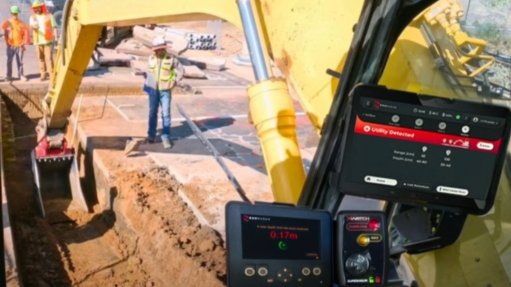Sappi Southern Africa Q3 profit falls as weak European market persists
JSE-listed paper, pulp and packaging group Sappi’s Southern African arm recorded an operating profit, excluding special items, of R183-million for the third quarter ending June, down from an operating profit of R255-million in the corresponding period in 2012.
The lower profit was attributed to weak domestic paper packaging and office paper business, which was dragged down by a still struggling European market.
However, in the local market, there were encouraging indications in the containerboard segment towards the end of the quarter, as volume improvements were realised.
“By the end of the fiscal year, we would have caught up. The improvement in volumes is hard to put a number [to], but, in my view, it will be back to similar demand levels as that of last year, maybe slightly higher,” Sappi Southern Africa (SSA) CEO Alex Thiel told Engineering News Online.
He noted that the uptick in containerboard volumes were on the back of the weaker rand and higher fruit exports. “Farmers are doing well in being able to sell products all over the world, despite weak European conditions.”
Meanwhile, the Southern African specialised cellulose business had another good quarter, generating R463-million in earnings before interest, tax, depreciation, and amortisation (Ebitda), excluding special items, at a margin of 30%.
Southern African sales volumes for the quarter were 183 000 t, similar to the prior quarter, and 8% lower than the equivalent quarter last year, owing to the timing of shipments.
Meanwhile, Thiel noted that the planned yearly maintenance shutdown of a pulp line at the Saiccor mill had taken place during the quarter. “The other issue we had was with the conversion at the Ngodwana mill.”
The conversion to produce dissolving wood pulp at the Ngodwana mill, in Mpumalanga, and the extended pulp mill downtime was estimated to have led to an operating profit impact of about R78-million during the quarter.
As a result of continuing difficult market conditions, SSA impaired plant and equipment at its Tugela and Stanger mills to the value of $51-million or R462-million.
Sappi group CEO Ralph Boëttger said the dissolving wood pulp projects at the Ngodwana and Cloquet pulp mills had now started production. The Cloquet mill produced the first bales of dissolving wood pulp in early June and the ramp-up had progressed according to schedule, with production and quality targets having been met.
He added that the Ngodwana mill started up in late July, a few weeks later than scheduled, and that Sappi expected the mill to rampup to full production over the coming months.
GROUP RESULTS
The group’s cash and cash equivalents decreased in the quarter, largely owing to capital expenditure outflows of $449-million, which related mostly to the dissolving wood pulp conversion projects.
In addition, the remaining $11-million of the group's senior secured notes of $41-million, which were due in 2014, were repaid. However, these outflows were partially offset by the placement of a public bond offering of $166-million and a $44-million seven-year bullet loan from financial services firm GroCapital.
The quarter under review saw total sales volumes falling 6% below that of the equivalent quarter last year, despite good growth in specialities volumes.
The average prices realised were slightly higher than in the previous quarter, as a result of marginal price increases for coated wood-free paper, but remained, on average, below those of the equivalent quarter in the prior year.
Sappi’s liquidity remained strong, with cash on hand of $236-million and $561-million in undrawn committed revolving credit facilities in Europe and South Africa. This was sufficient to complete the spending on the various capital projects.
Boëttger said the third financial quarter was seasonally the group’s weakest, owing to typically lower demand in Europe and North America and the scheduling of planned yearly maintenance shuts at most of the group’s major pulp mills.
“In addition, market conditions, particularly in our European paper business, deteriorated further during the quarter. These factors combined to reduce group operating profit, excluding special items, for the period to $8-million, from $40-million in the prior quarter, and $60-million for the equivalent quarter last year,” he stated.
The third-quarter results were also impacted by special items, including a charge of $11-million related to plantation price fair value adjustment and a charge of $4-million, owing to plantation fire damage in South Africa.
Sappi’s $2.3-million net debt was marginally up from $2.21-million in the 2012 equivalent period and remained in line with projections, despite the weaker operating performance.
“We expect debt levels to peak during the fourth quarter, as the final outlays for the dissolving wood pulp projects occur, and to end the quarter slightly lower than that reported for the third quarter,” Boëttger indicated.
OUTLOOK
Sappi expected its South African paper business to see growth in containerboard volumes in the months ahead, although demand would continue to be weak in other grades.
As a result of cost pressures and weak demand, further actions to improve the profitability were being implemented.
“We will certainly have to consider what capacity has a long-term future and we are looking at streamlining on a variety of fronts. One option is our overheads, making sure that costs per ton are kept flat. This means rationalisation of grades and will probably result in some capacity closure on the graphic paper side,” Thiel stated.
In terms of projections of when demand for other grades would improve, he indicated that a marginal improvement was becoming evident in terms of the packaging products in South Africa and abroad.
The group also put forward that its North American paper business was positioned to perform well in an increasingly competitive market and that it expected to realise some price increases on economy sheets and Web products over the coming months.
However, dissolving wood pulp prices were under pressure and could have an impact on margins.
Article Enquiry
Email Article
Save Article
Feedback
To advertise email advertising@creamermedia.co.za or click here
Press Office
Announcements
What's On
Subscribe to improve your user experience...
Option 1 (equivalent of R125 a month):
Receive a weekly copy of Creamer Media's Engineering News & Mining Weekly magazine
(print copy for those in South Africa and e-magazine for those outside of South Africa)
Receive daily email newsletters
Access to full search results
Access archive of magazine back copies
Access to Projects in Progress
Access to ONE Research Report of your choice in PDF format
Option 2 (equivalent of R375 a month):
All benefits from Option 1
PLUS
Access to Creamer Media's Research Channel Africa for ALL Research Reports, in PDF format, on various industrial and mining sectors
including Electricity; Water; Energy Transition; Hydrogen; Roads, Rail and Ports; Coal; Gold; Platinum; Battery Metals; etc.
Already a subscriber?
Forgotten your password?
Receive weekly copy of Creamer Media's Engineering News & Mining Weekly magazine (print copy for those in South Africa and e-magazine for those outside of South Africa)
➕
Recieve daily email newsletters
➕
Access to full search results
➕
Access archive of magazine back copies
➕
Access to Projects in Progress
➕
Access to ONE Research Report of your choice in PDF format
RESEARCH CHANNEL AFRICA
R4500 (equivalent of R375 a month)
SUBSCRIBEAll benefits from Option 1
➕
Access to Creamer Media's Research Channel Africa for ALL Research Reports on various industrial and mining sectors, in PDF format, including on:
Electricity
➕
Water
➕
Energy Transition
➕
Hydrogen
➕
Roads, Rail and Ports
➕
Coal
➕
Gold
➕
Platinum
➕
Battery Metals
➕
etc.
Receive all benefits from Option 1 or Option 2 delivered to numerous people at your company
➕
Multiple User names and Passwords for simultaneous log-ins
➕
Intranet integration access to all in your organisation



















